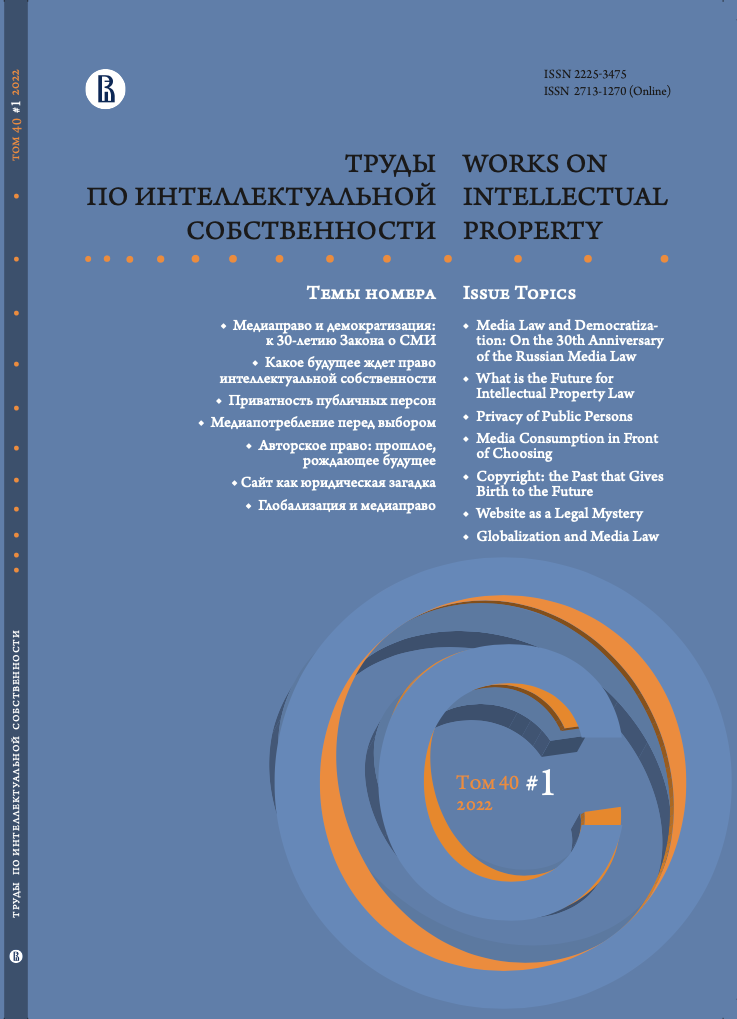GLOBALIZATION OF THE MASS MEDIA AND ITS IMPACT ON THE MEDIA LEGISLATION OF THE RUSSIAN FEDERATION
Abstract
Globalization is a global trend today. The focus of states on economic and social development causes an increase in the pace of integration. Globalization is having a marked effect on the widespread expansion of the mass media. The article presents the positions of individual specialists in the field of mass media, both on the positive and negative impacts of the globalization of the media, as well as on their consolidation, in which an increasing number of them are owned by a decreasing number of media companies. The interest of media giants in obtaining more income, as well as the ability of corporations to control global content, in some cases leads to the dissemination of one-sided or conflicting information about certain phenomena in public, political or social life. The problem of the influence of the media on the formation of public opinion has led and continues to lead to a modification of media legislation in the field of regulating the work of the media receiving foreign funding. The object of this study is Russian and foreign legislation regulating the activities of the media in the era of globalization.
The aim of the work is to identify the features of the impact of globalization on the media legislation of the Russian Federation. To achieve this goal, within the framework of the study, a historical-legal and comparative-legal analysis of approaches to the globalization of the media by the legislators of the USSR, the USA, China and the Russian Federation is carried out. The Russian and foreign legislation on mass media-foreign agents is analyzed. The article also examines the prospects for certain areas of improvement of the current Russian media legislation.


